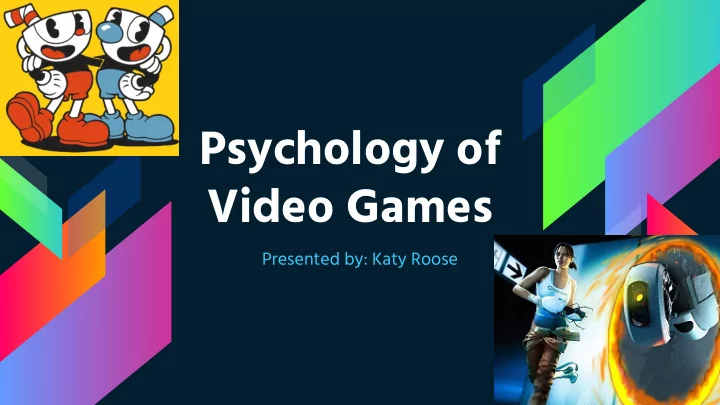

Psychology of Video Games Presented by: Katy Roose
BLUF- Bottom Line Up Front › Game Design is interdisciplinary › Good games stimulate players neurologically, cognitively, and socially/emotionally › Misuse or exploitation= BAD
Psychology in Games (in brief) Neurological Cognitive Social/Emotional Dopamine Attention Immersion ● ● ● Testosterone Memory Failure ● ● ● Fear Operant Conditioning ● ● (physiological) Decision Making ●
Cognitive Psychology
Attention › Tracking: Max 5 (Pylyshyn & Storm, 1988) › Exogenous vs. Endogenous Cues › Channel bandwidth › Glance Time (Rosielle, 2016)
Memory › Visual Working Memory: 16 “features” across 4 objects (Vogel et al., 2001) › Atkinson and Shiffrin’s 1971 Model › Implicit Memory (Roediger, 1990)
Operant Conditioning › Reinforcement (rewards) and Punishment
Decision Making › Hedonic adaptation › Need for closure › Ego Depletion › Completionists
Social/Emotional Psychology
Flow › state of consciousness in which there is a deep minded, and positive focus on the current task being performed (Csikszentmihalyi, 1990; 1997)
Failure › Supports learning › Competency › Feedback
Human Factors Psychology
Human Factors › Nielson › Gerhardt-Powal
Recommend
More recommend